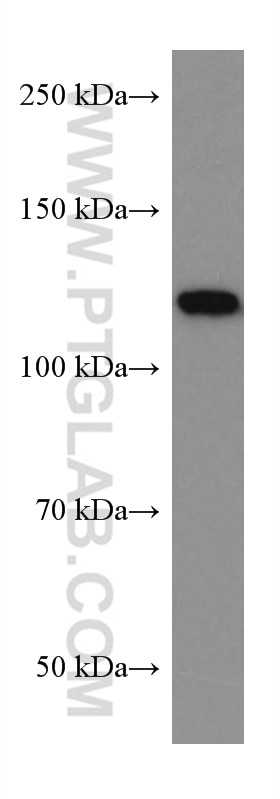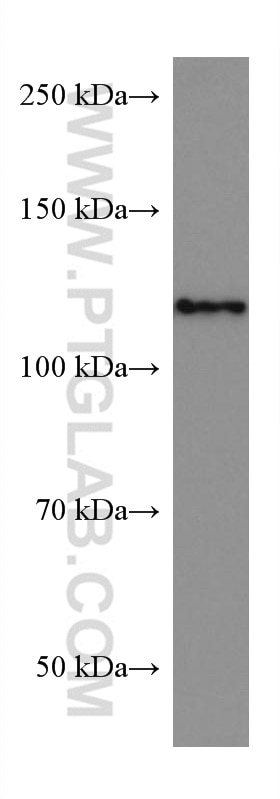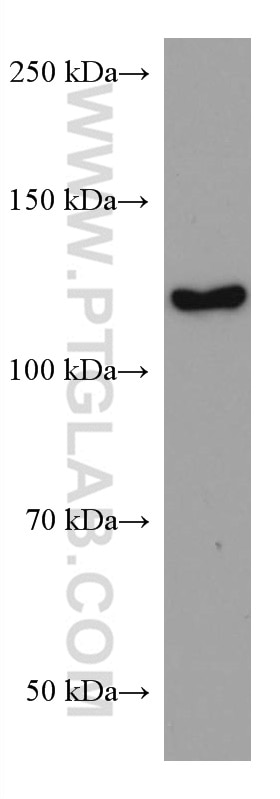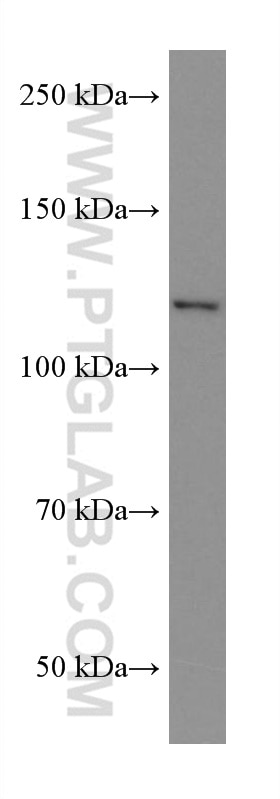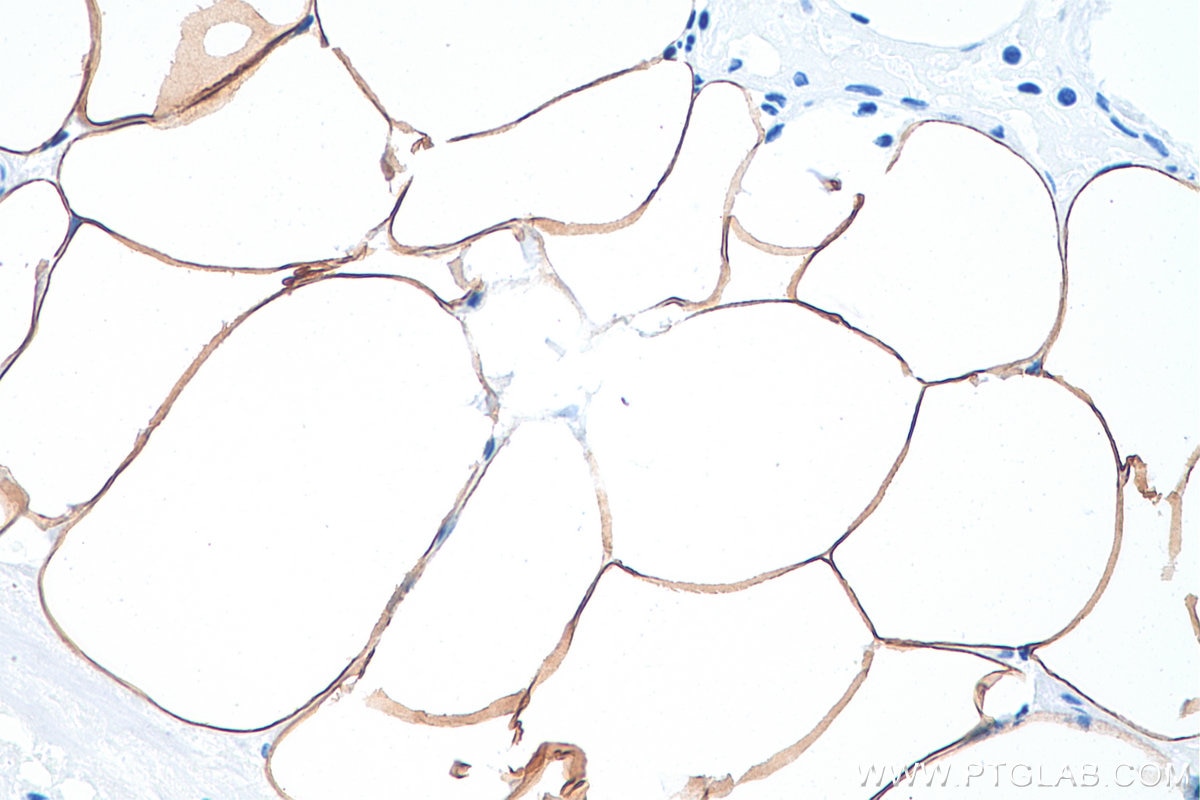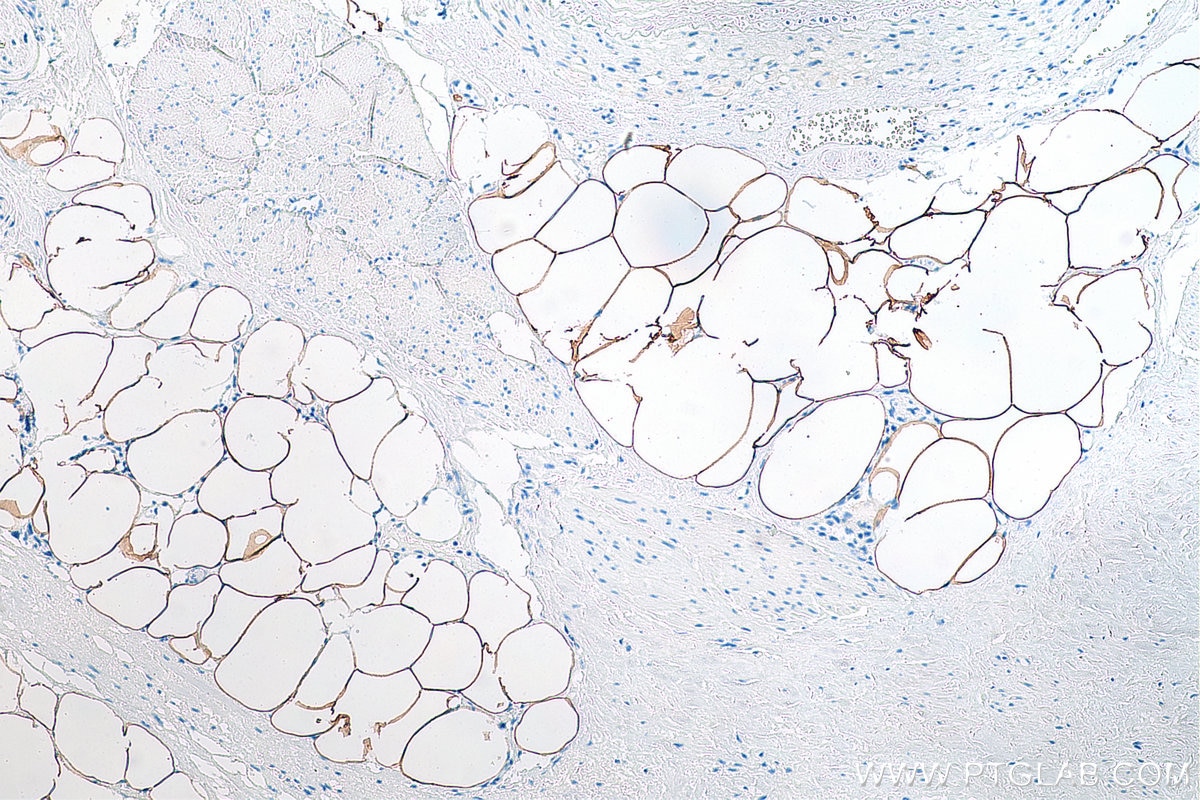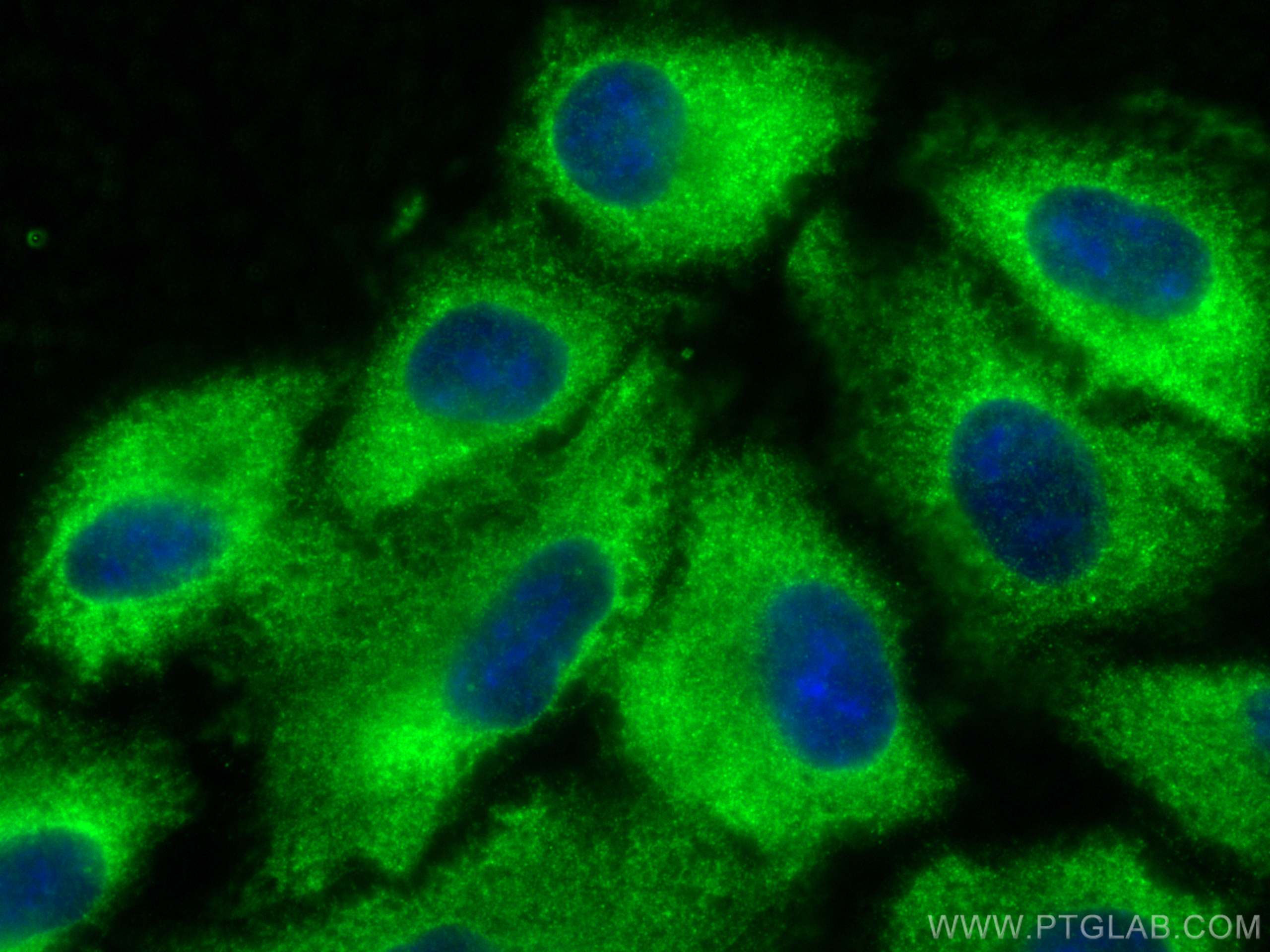Validation Data Gallery
Tested Applications
| Positive WB detected in | Jurkat cells, MCF-7 cells, HSC-T6 cells |
| Positive IHC detected in | human prostate cancer tissue Note: suggested antigen retrieval with TE buffer pH 9.0; (*) Alternatively, antigen retrieval may be performed with citrate buffer pH 6.0 |
| Positive IF/ICC detected in | A549 cells |
Mouse monoclonal antibodies of IgM isotype can be detected with "anti-mouse IgG (H+L)" secondary antibodies.
Recommended dilution
| Application | Dilution |
|---|---|
| Western Blot (WB) | WB : 1:1000-1:10000 |
| Immunohistochemistry (IHC) | IHC : 1:1000-1:4000 |
| Immunofluorescence (IF)/ICC | IF/ICC : 1:400-1:1600 |
| It is recommended that this reagent should be titrated in each testing system to obtain optimal results. | |
| Sample-dependent, Check data in validation data gallery. | |
Published Applications
| KD/KO | See 1 publications below |
| WB | See 12 publications below |
| IF | See 1 publications below |
| IP | See 1 publications below |
Product Information
67166-1-Ig targets ACLY in WB, IHC, IF/ICC, IP, ELISA applications and shows reactivity with human, mouse, rat samples.
| Tested Reactivity | human, mouse, rat |
| Cited Reactivity | human, mouse, rat |
| Host / Isotype | Mouse / IgM |
| Class | Monoclonal |
| Type | Antibody |
| Immunogen |
CatNo: Ag7709 Product name: Recombinant human ACLY protein Source: e coli.-derived, PGEX-4T Tag: GST Domain: 751-1101 aa of BC006195 Sequence: MFSSEVQFGHAGACANQASETAVAKNQALKEAGVFVPRSFDELGEIIQSVYEDLVANGVIVPAQEVPPPTVPMDYSWARELGLIRKPASFMTSICDERGQELIYAGMPITEVFKEEMGIGGVLGLLWFQKRLPKYSCQFIEMCLMVTADHGPAVSGAHNTIICARAGKDLVSSLTSGLLTIGDRFGGALDAAAKMFSKAFDSGIIPMEFVNKMKKEGKLIMGIGHRVKSINNPDMRVQILKDYVRQHFPATPLLDYALEVEKITTSKKPNLILNVDGLIGVAFVDMLRNCGSFTREEADEYIDIGALNGIFVLGRSMGFIGHYLDQKRLKQGLYRHPWDDISYVLPEHMSM 相同性解析による交差性が予測される生物種 |
| Full Name | ATP citrate lyase |
| Calculated molecular weight | 121 kDa |
| Observed molecular weight | 120 kDa |
| GenBank accession number | BC006195 |
| Gene Symbol | ACLY |
| Gene ID (NCBI) | 47 |
| RRID | AB_2882462 |
| Conjugate | Unconjugated |
| Form | |
| Form | Liquid |
| Purification Method | Caprylic acid/ammonium sulfate precipitation |
| UNIPROT ID | P53396 |
| Storage Buffer | PBS with 0.02% sodium azide and 50% glycerol{{ptg:BufferTemp}}7.3 |
| Storage Conditions | Store at -20°C. Stable for one year after shipment. Aliquoting is unnecessary for -20oC storage. |
Background Information
ACLY(ATP-citrate synthase) is also named as ACL. It is the primary enzyme responsible for the synthesis of cytosolic acetyl-CoA. ACLY serves as not only a target in oxygenated cells for suppression of lipid synthesis and histone acetylation, but also as a susceptible target in hypoxic cells to restore inhibition of glycolysis. In nonsmall cell lung carcinoma and hepatocellular carcinoma, ACLY is overexpressed compared with normal parenchyma suggesting that ACLY may represent a common target among highly malignant tumors(PMID:19795461). This protein has 2 isoforms produced by alternative splicing.
Protocols
| Product Specific Protocols | |
|---|---|
| IF protocol for ACLY antibody 67166-1-Ig | Download protocol |
| IHC protocol for ACLY antibody 67166-1-Ig | Download protocol |
| WB protocol for ACLY antibody 67166-1-Ig | Download protocol |
| Standard Protocols | |
|---|---|
| Click here to view our Standard Protocols |
Publications
| Species | Application | Title |
|---|---|---|
Adv Sci (Weinh) Transcriptional Regulation of De Novo Lipogenesis by SIX1 in Liver Cancer Cells | ||
Phytomedicine Melittin suppresses ovarian cancer growth by regulating SREBP1-mediated lipid metabolism | ||
Int Immunopharmacol ACLY inhibitor reduced Porphyromonas gingivalis-induced pyroptosis by suppressing microtubules acetylation in macrophages
| ||
Molecules The Different Mechanisms of Lipid Accumulation in Hepatocytes Induced by Oleic Acid/Palmitic Acid and High-Fat Diet | ||
Mediators Inflamm The Mutual Inhibition of FoxO1 and SREBP-1c Regulated the Progression of Hepatoblastoma by Regulating Fatty Acid Metabolism. | ||
Cell Death Dis ARHGEF3 regulates the stability of ACLY to promote the proliferation of lung cancer |

